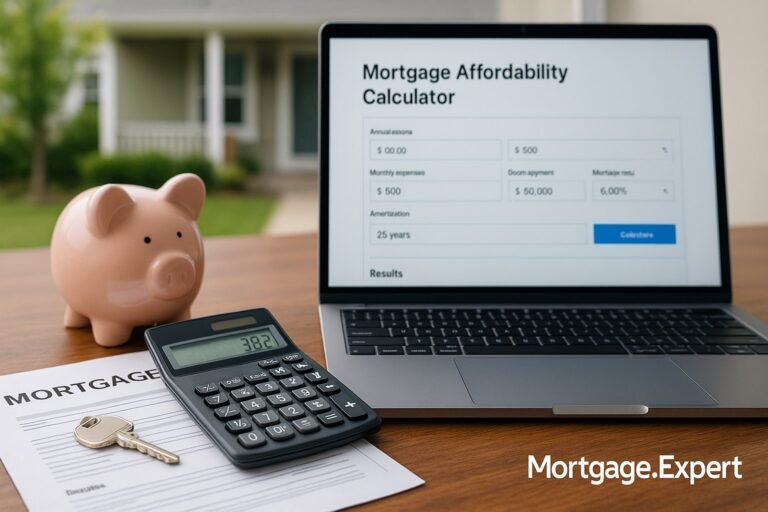
First-Time Home Buyer Loans in Canada
Thinking about buying your first home in Canada? This guide breaks down the top loan options, government programs, and expert tips to help you make a confident move into homeownership
What are First-Time Home Buyer Loans?
A first-time home buyer loan in Canada isn’t just a traditional loan. It can refer to a variety of tools like mortgages, government programs, rebates, and financial incentives designed to help first-time buyers enter the housing market. If you’re ready to ditch your landlord or even dream of becoming one, these programs can make your first home more affordable and accessible.
How Do You Qualify for First-Time Home Buyer Grants & Incentives in Canada?
Canada offers several initiatives to help you buy your first home. Don’t leave money on the table — here are the main ones:
Home Buyers’ Tax Credit (HBTC): A non-refundable income tax credit of up to $5,000 to help with closing costs.
Home Buyers’ Plan (HBP): You can withdraw up to $60,000 from your RRSP (tax-free) to buy or build your first home, as long as it’s paid back within 15 years.
GST/HST New Housing Rebate: This rebate lets you recover some of the GST or HST paid on a newly constructed home or major renovation.
Land Transfer Tax Rebates: Available in Ontario, BC, PEI, and Toronto, these rebates reduce the tax owed at closing. (See: First-Time Home Buyer Land Transfer Tax Rebates Across Canada.)
Not sure which apply to you? Don’t stress. That’s where a mortgage expert can help you filter what you’re eligible for and how to apply.
Variable vs Fixed Home Loans in Canada: The Debate
This decision is all about your personality and risk tolerance. Are you someone who needs to know exactly what you’ll pay every month? Or can you handle a little unpredictability in exchange for possible savings?
What are Fixed Mortgage Rates?
A fixed-rate mortgage gives you a stable interest rate and payment amount over your term (usually 2, 3, or 5 years). These are ideal for buyers who want predictable monthly costs. You’ll often pay a slightly higher rate for the peace of mind, but if you’re the spreadsheet-loving, budget-stickler type, fixed may be for you.
What are Variable Mortgage Rates?
Variable-rate mortgages fluctuate with the prime rate, which is influenced by the Bank of Canada. This means your payment amount or the portion that goes toward interest and principal may change during your term.
If you can stomach some ups and downs and have a bit of wiggle room in your budget, this option could save you thousands over time. A great example? During the COVID-19 pandemic, prime rates dropped, and variable mortgage holders enjoyed big savings.
Down Payment Rules
In Canada, your minimum down payment depends on the home’s purchase price:
- Under $500,000: 5% minimum
- $500,000 to $999,999: 5% on the first $500K + 10% on the remainder
- $1 million or more: 20% minimum
You must show where your down payment comes from. Gifts from family are okay, but borrowed money (like from a credit line) typically is not.
Can I Borrow My Down Payment?
Generally, no. Lenders want to see that your down payment comes from savings or a legitimate gift. If it’s borrowed, you’ll still owe that money and it affects your debt service ratios.
You’ll be asked to share unedited bank statements. Expect to explain any deposits over $1,000. It may feel invasive, but lenders must follow anti-money laundering laws and verify that your funds are legitimate.
Do You Really Have to Share Bank Statements?
Yes, and here’s why: Canada has strong financial laws to prevent money laundering and ensure borrowers are financially stable. Lenders are legally required to see proof that your down payment is from an eligible, non-borrowed source.
This isn’t about invading your privacy. It’s about protecting the financial system and making sure you’re not taking on more risk than you can handle.
CMHC Insurance & Down Payments
If your down payment is under 20%, you’ll need mortgage default insurance through CMHC (or similar providers). While it adds to your cost, it’s what enables you to buy with as little as 5% down.
Some people wait years to save 20%, hoping to avoid the insurance premium. But often, home prices rise faster than you can save, erasing the benefit. A smaller down payment today could get you in the market faster, help you build equity sooner, and avoid getting priced out altogether.
Final Thoughts
Buying your first home in Canada doesn’t need to feel overwhelming. With the right information and expert support, you can take advantage of the programs and options that make homeownership realistic and affordable.
There’s never been a better time to stop renting and start investing in your own future. Whether you’re still saving your down payment or already house-hunting, Mortgage.Expert is here to guide you through the process, one step at a time.
Why Choose Mortgage.Expert
We specialize in helping first-time buyers succeed. No commission. No pressure. Just honest advice, great rates, and support from day one to closing.
Book your free call today and take your first step toward owning a home.
To know about the Mortgage Protection Insurance. Click Here
Stuck with a Mortgage Decision?
Don’t stress — our team is here to help. Reach out for free, no-obligation guidance.
Contact the Experts



